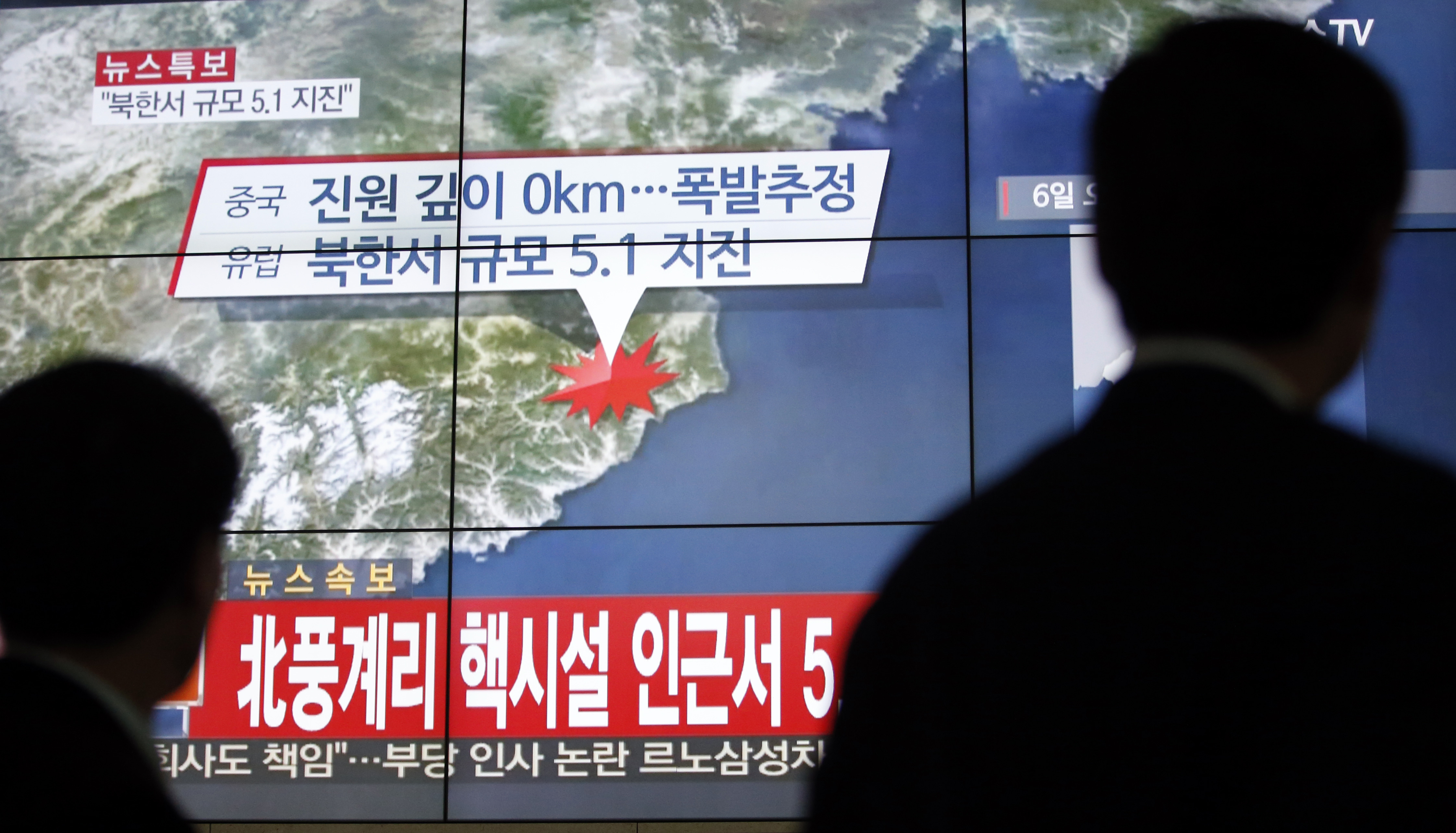BBG networks provide crucial information on North Korea nuclear tests

VOA and RFA are providing comprehensive coverage of the developments in North Korea after the government there conducted what it claims was a successful hydrogen bomb test.
For many in North Korea, VOA and RFA are the only source of accurate and reliable information in the press-restricted country.
VOA’s Korean Service reported on U.S. and international condemnation, including doubts expressed by the White House about the veracity of DPRK’s claims. Coverage of the international response also included statements from the U.S. State Department and coverage of the emergency meeting of the United Nations Security Council. VOA’s Seoul bureau covered reaction from South Korea’s government, which vowed that Pyongyang will pay a price for its latest test.
VOA’s Mandarin Service correspondent in Beijing provided coverage of the Chinese government’s response and included analysis from Yang Xiyu, former director of the North Korean desk at China’s Foreign Ministry, on what the test means for China. Yang expressed concern that the test may indicate a major advance in North Korea’s nuclear program and worried about escalating tensions in the region. VOA Mandarin also interviewed top U.S. Asia analysts on how the U.S would react to the North Korean provocation. Bruce Klinger of American Enterprise Institute, a former CIA Asia analyst, said the U.S. may need to broaden the sanctions to the level close to that of Iran’s nuclear program. The Mandarin Service also interviewed arms control and nuclear proliferation experts, including David Albright of Institute for Science and International Security and Timothy Heath of Rand Corporation, who explained why Pyongyang’s claim of a thermonuclear test is not credible.
VOA Mandarin has created a special multimedia web page that tracks U.S. and international responses on the North Korea nuclear issue.
VOA’s Korean and Mandarin Services also spoke with a nuclear scientist about the testing needed to confirm the type of detonation, and with political experts who discussed the regional and international ramifications of the test. VOA Mandarin’s correspondent in Beijing interviewed local residents on their reaction to the North Korean nuclear test. Many criticized it for creating fear in the region, while some think Pyongyang still serves as a useful buffer for China. VOA Mandarin reported through social media on comments from presidential candidates, as well as members of Congress, on the North Korean test.
Radio Free Asia’s Korean Service provided a one-hour special program on Wednesday which included expert analysis, official reaction from the U.S., South Korea and international community, and response from North Korean defector communities and people inside North Korea.
RFA’s coverage also included a cross-section of experts who offered political analyses of the test, including Andrei Lankov, of Kookmin University in Seoul, one of the foremost North Korea analysts in the world. He told RFA that the test appeared likely to undo any progress Beijing and Pyongyang have made to mend ties in 2015. Timothy Stafford, a research analyst on nuclear proliferation and policy at the Royal United Services Institute in London, told RFA that North Korea was challenging China’s attempt to balance concerns about Kim Jung Un’s nuclear proliferation with its fear that bringing down the dictator would flood adjacent parts of China with hungry, destitute refugees.
The network also provided valuable background information such as the chronology of North Korea’s nuclear history and exposed the misinformation reported in official state media broadcasts.
RFA’s Mandarin and Cantonese Services also reported on Chinese citizens’ reactions to the test and monitored comments on Weibo and other Chinese social media platforms.
